Choose To Reuse
by Rianna Koppel, Co-op Sustainability Coordinator
At the Ashland Food Co-op, we are committed to becoming Zero Waste by 2030. Along the way, we’ve learned a lot about packaging and single-use at our store. Our owners care deeply about reducing plastic waste, and we do too!
Reusable Bags
At the co-op, we have many different bag options… So what's the best choice?
We offer plastic bags, paper bags, and reusable bags. There is a 2¢ charge for new plastic bags, and a 10¢ charge for new paper bags. These charges help to subsidize the costs of our reusable bags.
We offer two reusable options, both costing only 50¢! Our plastic bag is made from reused and recycled plastic. Our fabric bag is made from cotton by the company Royal Jute. 100% of the proceeds from Royal Jute go directly to Kiva, a nonprofit that finances micro-lending programs for women across the world. Every time you purchase or use one of these bags, it makes a real impact for the planet and people.
Since we introduced reusable bags in fall of 2018, we have sold over 16,000 of them to our awesome and very sustainable members. This has worked to reduce plastic too - we have ordered 100,000 less plastic produce bags than in 2018.
What About Compostable Bags?
Sometimes people ask, why don’t you use compostable bags like other grocery stores? This is a great question, with a complex answer.
There are many commercially compostable items out there - including our very own Co-op take-out containers. If you start reading the tiny font on various packaging, you will see that there are many packaged items that are compostable in industrial or commercial facilities.
Here’s the problem: we don’t have any industrial composting facilities in the state of Oregon that will take these kinds of materials.
In fact, every composting facility in Oregon came together to issue a statement on their refusal. They called it, “A Message From Composters Serving Oregon: Why We Don’t Want Compostable Packaging and Serviceware”. The company listed out nine reasons why it’s not a good idea, including the facts that these materials do not always break down, they introduce contaminants, and they cannot sell this compost to organic farmers.
You can read more about this statement in this NCRA article from March 2019.
What about straws made from avocado pits?
So what about bio-based products made from renewable materials like bamboo, corn, or avocado pits? No matter the material, it’s still a single-use straw. There is a financial impact as well - straws made from avocado pits costs a whopping 600% more than a single-use paper straw. I suggest trying a reusable stainless steel straw instead!
There’s another hidden cost to plastics made from materials like corn… the impact on the environment.
According to the Oregon Department of Environmental Quality’s study on Popular Packaging Attributes, bio-based disposables can actually have a worse environmental impact! They concluded that biobased packaging materials have significant environmental trade-offs when compared to non-bio based counterparts. Plus, they take away from food production.
What Can I Do?
Choose to reuse first. Make sure to throw your reusable produce bags in with your tote bags, and don’t forget your coffee cup! Eat in at the Co-op on a durable plate or bowl - which will save you 15¢.
There are different ways to address our plastic problems, and each one of them can start with us making the choice to reuse. We started our 15¢ discount for bringing your own coffee cup in 2013 - since then, customers have used this discount over 113,000 times! That’s an amazing diversion from the landfill that makes us proud to be committed towards zero-waste at the Co-op.
If you would like to learn more about our sustainability initiatives, contact Rianna at sustainability@ashlandfood.coop.
More Co-op News
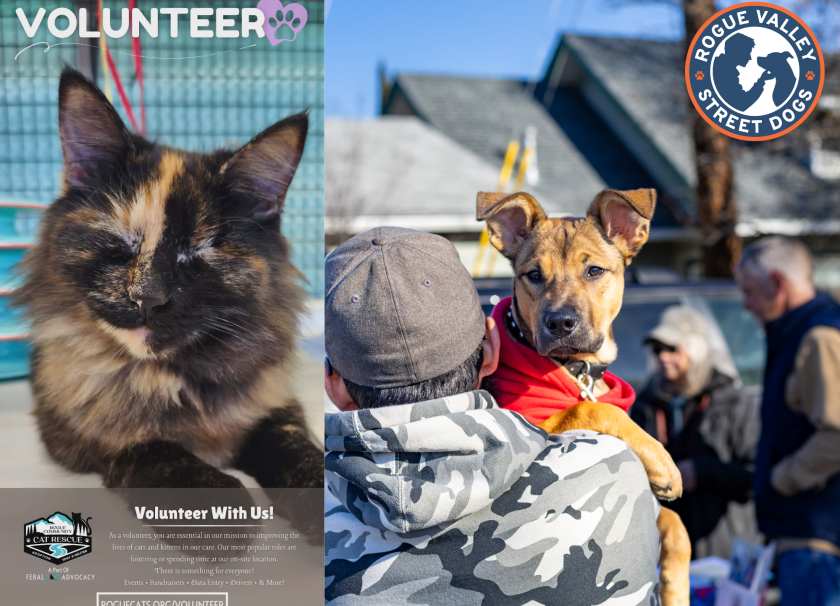
Meet our February Change for Good Recipients
This month at AFC we're doing things a bit different! For the entire month of February round up your total at checkout and donate to TWO amazing organizations: Rogue Community Cat Rescue and Rogue Valley Street Dogs.
Rogue Community Cat Rescue is a nonprofit based in Medford, Oregon that aims to advocate for and improve the lives of community cats and kittens through Trap-Neuter-Return (TNR), rescue, foster care, adoption, and education. Recently, RCCR has been able to shift into larger-scale projects including, but not limited to:
The Co-op Community Classroom - Learn from local educators!
Located at 300 N Pioneer St, just behind the Co-op, sits our lovely community classroom. Here, we host delicious cooking classes, free lectures, sustainability classes, health and wellness events, cookie parties, community dinners, board meetings, and more! Owners get discounts!
You can find all events happening in the classroom at ashlandfood.coop/events, or look around the store as you shop for information teasing our upcoming classes.
If you are interested in TEACHING a free or paid class, you can contact education@ashlandfood.coop for more information.
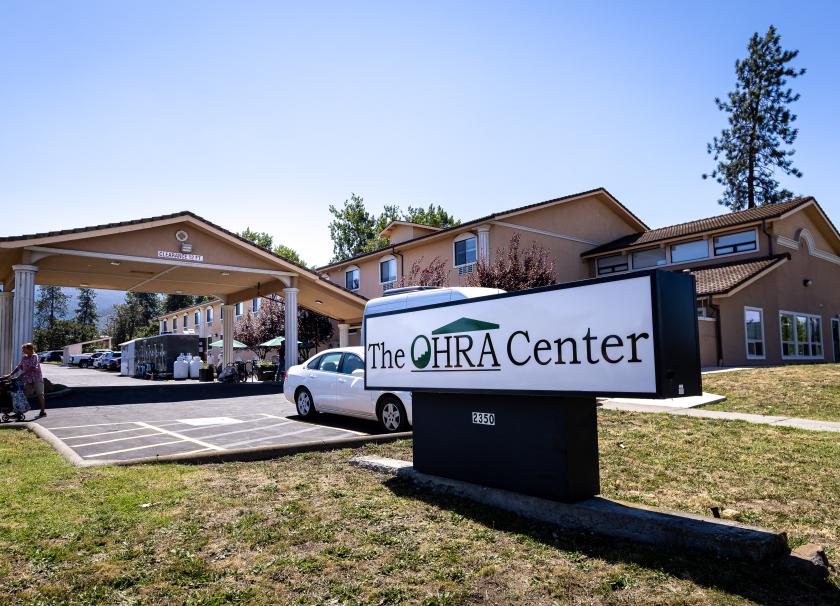
Meet our January Change for Good Recipient
"Moving people from crisis to stability," Opportunities for Housing Resources and Assistance or OHRA is a non profit organization whose mission is to help low-income people build better lives. This is done by offering both hope and access to various social services,
"We encourage those in need on the path to self-sufficiency."
December Change for Good: Jackson County Fuel Committee
If you’ve lived through even one Rogue Valley winter, you know the cold settles in quickly. The frosty mornings, the long dark evenings, the kind of chill that lingers no matter how many layers you put on - winter can be tough. And while many of us can manage with the help of heaters, woodstoves, and warm homes, thousands of families in our community struggle to access the heat they need to stay safe and comfortable. That’s where the Jackson County Fuel Committee (JCFC) comes in!


November Change for Good Recipient
Meet our November Change for Good Recipient: The Siletz Health Clinic
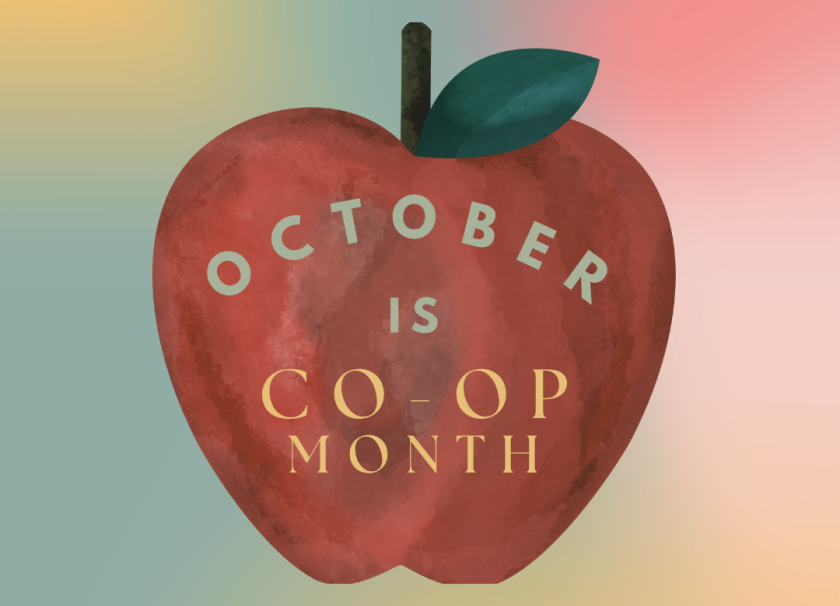
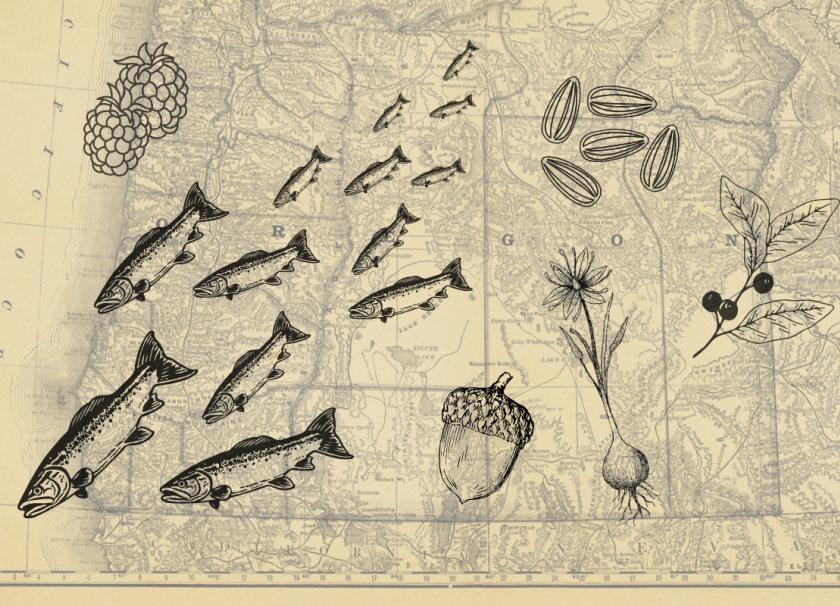
Celebrating Indigenous Food and Traditions
Each October, when so many across the country celebrate Indigenous Peoples' Day, the Ashland Food Co-op pauses to reflect on the land we call home, the people who've cared for it, and how food and connections to the land can help us return that inheritance in a positive way.
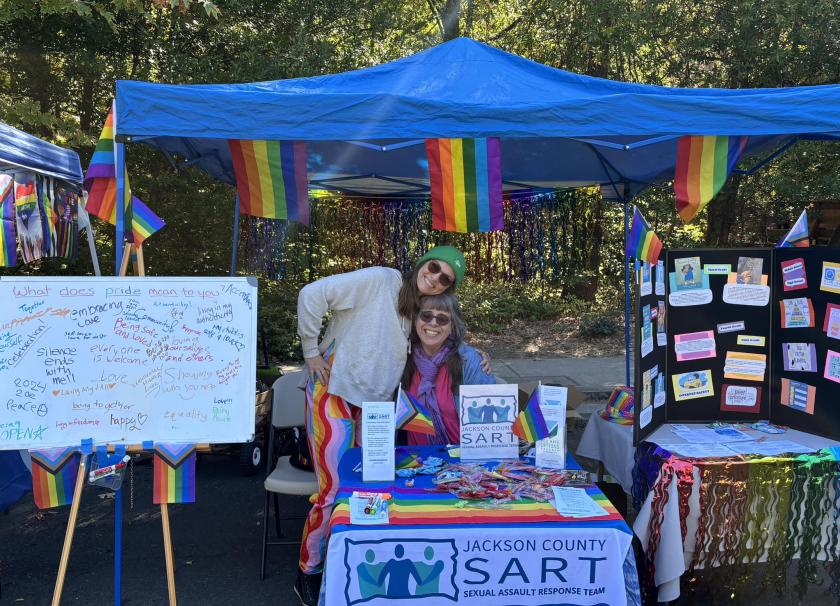
September Change for Good: Siskiyou Field Institute
This month, your Change for Good donations support Siskiyou Field Institute (SFI), an organization that helps people connect with one of the most biodiverse regions in North America: the Klamath-Siskiyou ecoregion.

Meet our August Change for Good Partner - Ashland Schools Foundation
August's Change for Good partner is a perfect fit for this month as our kids head back to school. Ashland Schools Foundation (ASF) is a nonprofit dedicated to supporting quality education in Ashland's public schools. You may have run in the Monster Dash or noticed the "Perk Up for Students" sign at our local coffeeshops - these are just some of the (fun and delicious) ways you are already supporting ASF.
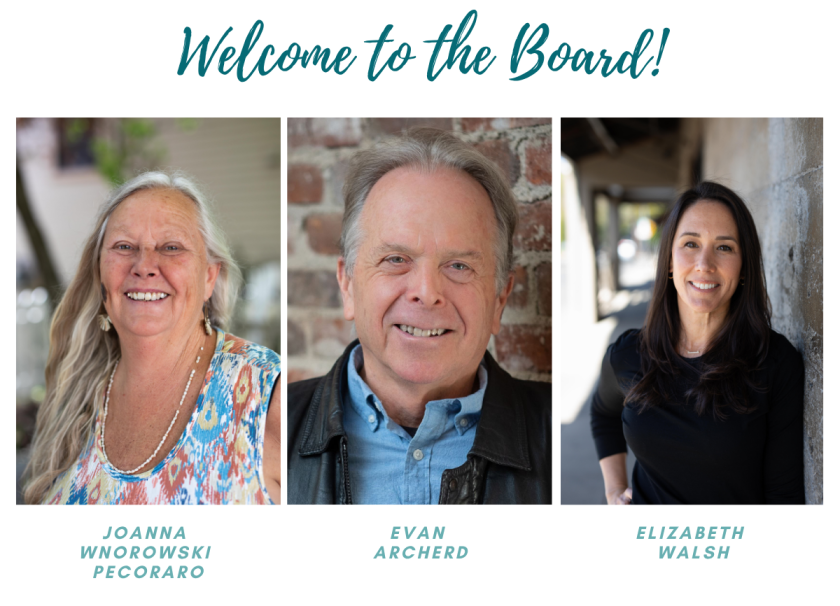
Welcome to the Board!
We are happy to welcome two new Directors, Evan Archerd and Elizabeth Walsh, to the Board! And we're thrilled to have Joanna Wnorowski Pecoraro continuing to serve!
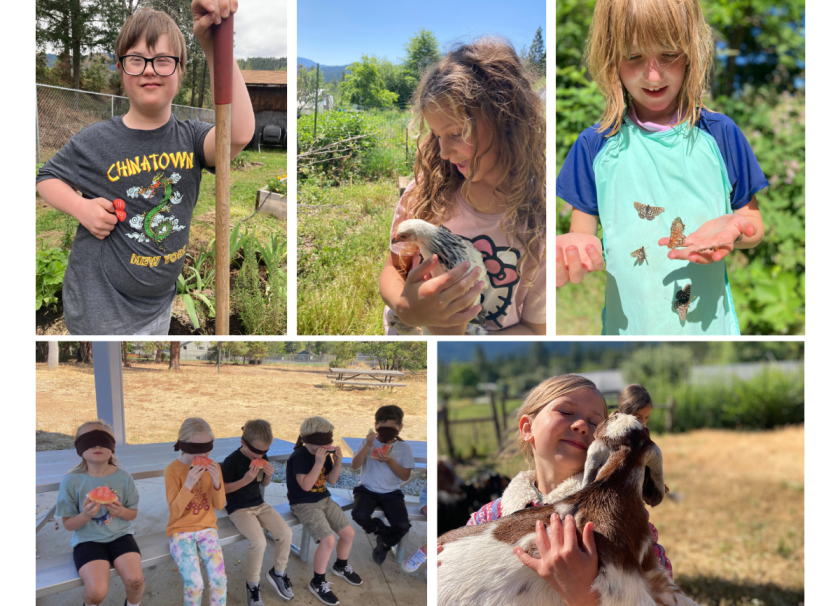
July Change for Good Partner: White Oak Farm
This month, we’re proud to support White Oak Farm, an inspiring organization that blends sustainable farming, environmental education, and community nourishment—right here in Southern Oregon.
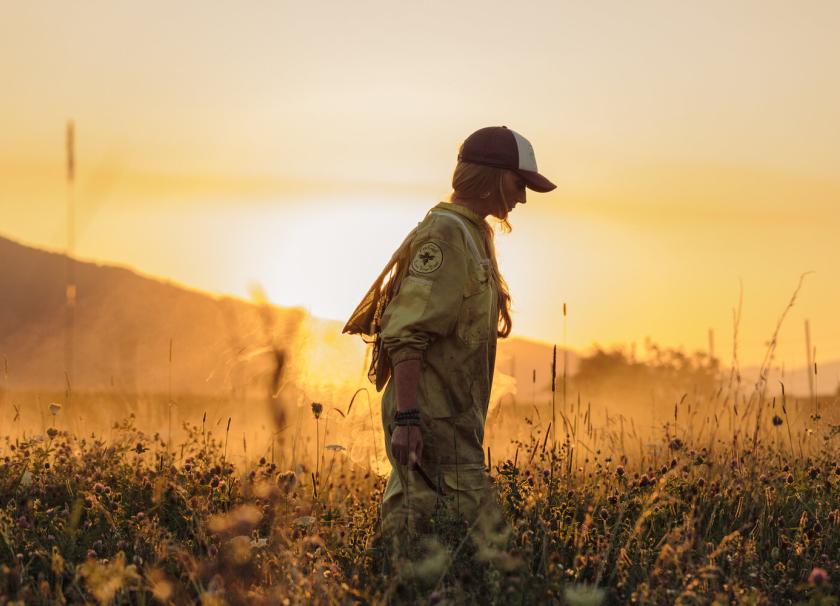
Bee the Change: Supporting Pollinators, Art, and Education with Bee Girl
Here at Ashland Food Co-op, we’re buzzing with excitement about our July Change for Good partner: Bee Girl / Bee Regenerative! This local nonprofit is doing some bee-autiful work to protect pollinators, restore habitats, and teach the next generation how to care for the tiny creatures that keep our food systems thriving.
Bee Girl + Bee Regenerative: More Than Just a Name
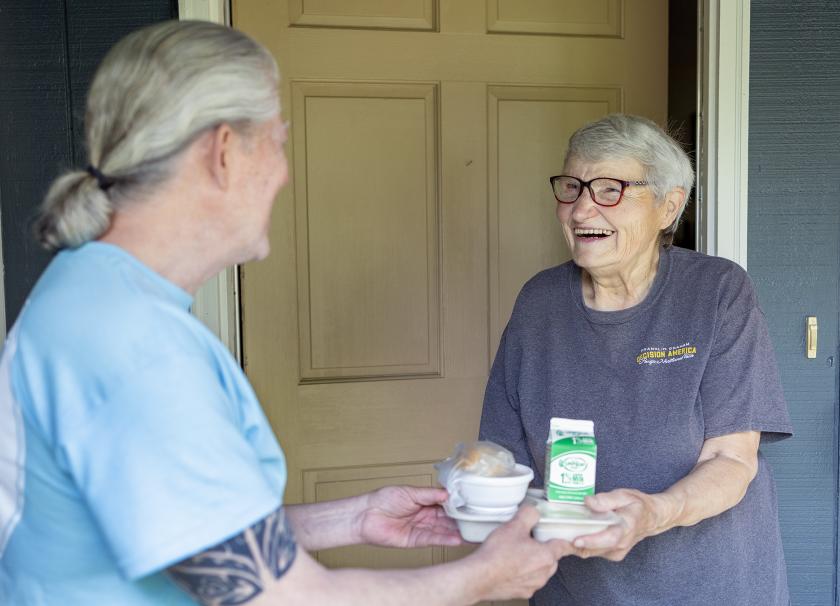
May Change for Good: Food & Friends
Each May, Ashland Food Co-op highlights a local nonprofit doing vital work in our community—and this month, we're proud to feature Food & Friends, the only Meals on Wheels program serving Jackson and Josephine Counties.
